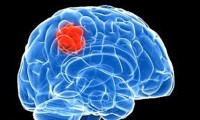-
Trigger for most common form of vision loss discovered
- Source: iran-daily
- 755
- November 30, 2017
-
Combination HIV prevention reduces new infections by 42 percent in Ugandan district
- Source: medicalxpress
- 720
- November 30, 2017
-
Does Loss of REM Sleep Affect Overall Health?
- Source: medicalnewsbulletin
- 669
- November 29, 2017
-
New Genes Associated With Cognitive Ability Identified
- Source: neurosciencenews
- 811
- November 29, 2017
-
Do You Really Need To Stop Drinking On Antibiotics?
- Source: womenshealthmag
- 788
- November 29, 2017
-
Radiotherapy-resistant tumors could be defeated with experimental drugs
- Source: medicalnewstoday
- 759
- November 28, 2017
-
Zika Virus Kills Brain Cancer Stem Cells MEDICINE & HEALTH
- Source: scienmag
- 841
- November 28, 2017
-
Unforeseen new drug target discovered for acute myeloid leukemia
- Source: medicalxpress
- 830
- November 28, 2017
your submission has already been received.
OK
Subscribe
Please enter a valid Email address!
Submit
The most relevant industry news & insight will be sent to you every two weeks.













